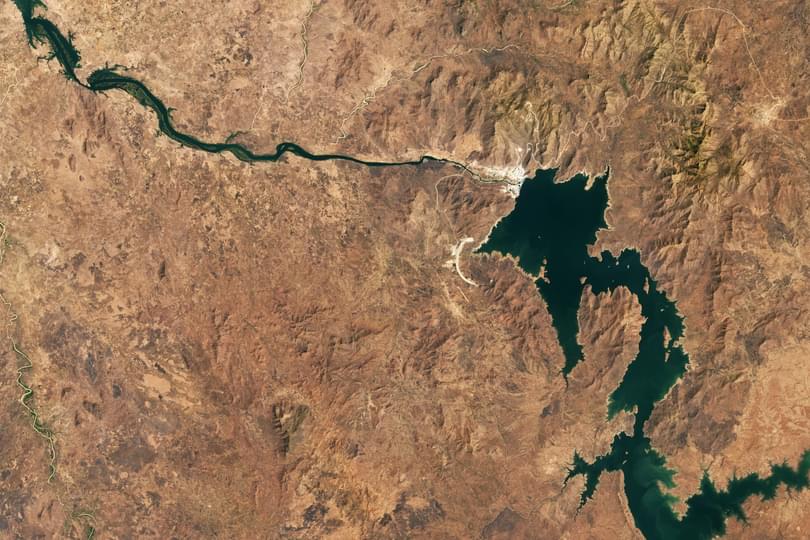
The Nile River basin has been embroiled in controversy over the Grand Ethiopian Renaissance Dam (GERD) ever since the late Ethiopian Prime Minister Meles Zenawi announced in March 2011 that Ethiopia would build the largest hydroelectric power dam in Africa on the Blue Nile immediately upstream of the Ethiopian-Sudanese border.
More than a decade later, with the GERD approaching completion and its reservoir filling, arrangements for completing filling and subsequent operation of the GERD have still to be agreed. The disagreement has stoked national tensions in the region. In a characteristically undiplomatic remark in 2020, President Donald Trump said that Egypt would “… end up blowing up the dam.”
In this delicate political situation, Oxford Martin School scientists have been working to provide scientific evidence in support of the diplomatic negotiations. The research forms part of the Oxford Martin Programme on Transboundary Resource Management, which brings together experienced hydrological scientists and systems engineers, along with experts in politics and international relations, to analyse situations in which natural resources (energy and water) are contested across national boundaries.
The Oxford Martin School team are demonstrating how systems analyses can act as a focal point for diplomatic negotiations. Bringing together technical specialists from different countries, they are working to build mutual understanding that can contribute to a diplomatic agreement.
The team recently assembled a group of ten internationally leading Nile specialists to write a response to a scientifically flawed article that was published last year in the respected journal Environmental Research Letters about the filling of the GERD Reservoir. Our response, which analyses the methods used and assertions made in this controversial paper, was published this week also in Environmental Research Letters [1].
The original article [2] implied that the impacts of the dam’s construction on Egypt would be much greater than other scientists, engineers and economists had previously determined. It claimed that under a rapid filling of the GERD over three years, the Egyptian economy would lose US$51 billion and 4.74 million jobs, such that in 2024, GDP per capita would be 6% lower than under a counterfactual without the GERD.
The Oxford Martin School team found that this article contained an oversimplified hydrological analysis and calculations of the economic implications for Egypt that were based on unfounded assumptions. Our response explains there is minimal risk of new water shortages in Egypt during the filling period if flows in the Blue Nile are normal or above average. Furthermore, there is a relatively small risk of substantial water shortages in Egypt if a severe drought were to occur at the same time as the GERD Reservoir is filling. Moreover, any risks to Egypt could be mitigated by collaborative and carefully planned water management responses, should a severe drought occur.
Unfortunately, the flawed article has already had hundreds of thousands of references on social media and has attracted widespread attention on TV channels including Al Jazeera. By putting the record straight, the Oxford Martin School researchers hope to contribute to diffusing a delicate political situation.
[1] Wheeler, K., Jeuland, M.A., Strzepek, K., Hall, J.W., Zagona, E., Abdo, G., Basson, T., Blackmore, D., Block, P. and Whittington, D. Comment on 'Egypt's water budget deficit and suggested mitigation policies for the Grand Ethiopian Renaissance Dam filling scenarios', Environmental Research Letters, 17(8) (2022): 088003. https://iopscience.iop.org/article/10.1088/1748-9326/ac7e5e
[2] Heggy, E., Sharkawy, Z., & Abotalib, A. Z. (2021). Egypt’s water budget deficit and suggested mitigation policies for the Grand Ethiopian Renaissance Dam filling scenarios. Environmental Research Letters, 16(7), 074022. https://doi.org/10.1088/1748-9326/ac0ac9
This opinion piece reflects the views of the author, and does not necessarily reflect the position of the Oxford Martin School or the University of Oxford. Any errors or omissions are those of the author.
